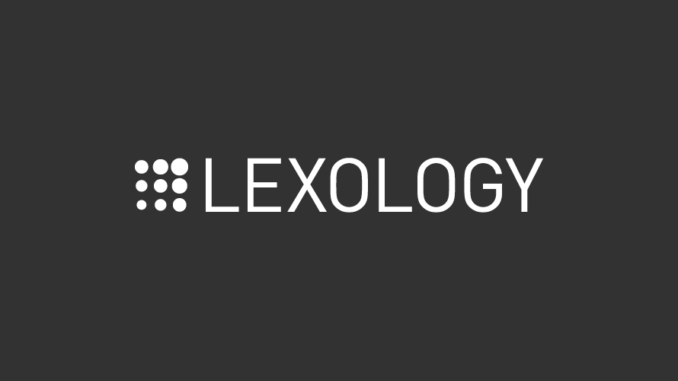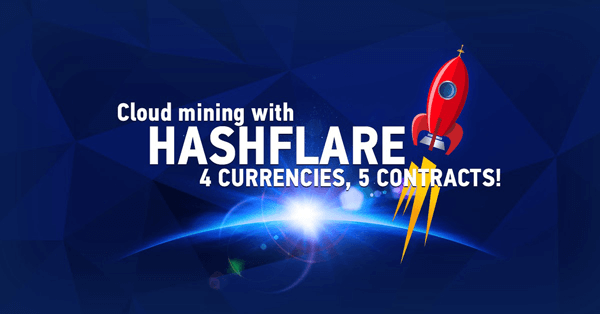
[ad_1]
Inward remittances have made outstanding contributions to Vietnam’s financial progress. Philip Ziter, a lawyer within the Ho Chi Minh Metropolis workplace of US-backed legislation agency Russin & Vecchi, offers evaluation on funding alternatives associated to blockchain remittances for the nation, in addition to coverage suggestions.
Most authorized cross-border funds are made by way of a community of correspondent and middleman banks or cash switch operators (MTOs). There isn’t any central clearing system, and these transactions can solely happen throughout common banking hours. Transactions are topic to processing charges from a number of middleman banks. MTOs comparable to Western Union are a sooner however costlier various, usually utilized by the unbanked.
Blockchain know-how modifications all of this. Primarily based on distributed ledger know-how (DLT), every transaction that happens on a given community is recorded. An ideal, similar document of every switch is maintained on every community’s computer systems or “nodes”. Transactions are grouped in “blocks” and chronologically recorded in a “chain”. All events on a community can assessment prior entries.
Blockchain offers irrevocable, real-time, cross-border transmission. With low banking penetration, sturdy demand for monetary companies, extraordinarily excessive cellular penetration, and a creating monetary infrastructure, the case for remittances utilizing blockchain in Vietnam is powerful.
Conventional expense
Protected cross-border cash transfers depend on banks and MTOs. Unregulated, various remittance channels (which means the Hawala system) have lengthy existed, however these are based mostly strictly on belief.
In response to the World Financial institution, the typical price to ship a remittance worldwide by any technique was 6.94 per cent within the first quarter of 2019. Remittance charges are particular to every remittance hall (which means a supply nation and vacation spot nation pair, for example the US-Vietnam). Utilizing banks affords a excessive stage of belief, however the prices are excessive. Change charge losses and processing charges complete on common 9 per cent of the switch worth. Utilizing banks to remit isn’t all the time an choice for largely unbanked populations in creating nations like Vietnam.
Blockchain has main benefits over banks or MTOs. Onn January 16, 2020, for instance, an nameless switch of greater than $1.1 billion was despatched with an indelible footprint in a matter of minutes. The transaction price was 0.00005578 BTC – which, on the time, was price US$0.48.
MTOs don’t require entry to a checking account however are each inconvenient and costly to make use of. Staff who ship their wage house usually queue up for hours. The charges incurred are important.
Blockchain powered transactions utilizing DLT scale back prices by eradicating a number of intermediaries. Blockchain-based remittance suppliers, like Cash.ph, have been profitable within the Philippines. Homegrown Vietnamese firms have began to make headway however have but to enter the mainstream.
The way it works
A blockchain remittance can take many kinds. For instance, a sender with a checking account begins by loading a crypto pockets (primarily an app) supplied by the remittance firm. Fiat forex is used to buy cryptocurrency from the remittance firm or a third-party change. An quantity of cryptocurrency is then transferred to the recipient’s pockets out of the country. Funds are then modified again to fiat and transferred to a checking account.
If both get together doesn’t have a checking account, the move modifications. In some circumstances, an unbanked sender or receiver can interface with a money level (for instance comfort retailer chain, telco top-up card), bitcoin ATM, and even conventional ATMs. Recipients use codes which permit them to withdraw money with no card and even with no checking account.
Irrespective of the move, points which contain understanding your buyer and anti-money laundering guidelines are actual and should be addressed. Regulators take totally different approaches and, after all, the authorized framework varies by jurisdiction. Vietnam’s authorized framework isn’t but full.
With blockchain, customers can simply and really safely remit cash to members of the family or enterprise companions in a matter of minutes, at a fraction of the fee. The remitter, straight away, can affirm his transaction, with none third-party intervention, assured that it can’t be modified. When in comparison with conventional financial institution transfers, with gradual processing occasions, working hours, and switch charges, the worth proposition is stark.
Market gamers are already shifting into the area. Most notably, MTO market chief Western Union has related with blockchain startup and crypto pockets Cash.ph, enabling residents of the Philippines extra simply to obtain remittances. Japan’s SBI Ripple Asia Co. and Vietnam’s TPBank have co-operated to launch a cash switch service on the Vietnam–Japan hall utilizing blockchain know-how. In response to an April 29, 2020, article on Ripple’s web site, “As we speak, TPBank processes billions Japanese Yen, equal to dozens of thousands and thousands USD monthly from Japan to Vietnam by way of RippleNet. Remittances are real-time transfers and processed 24/7, a revolutionary system in comparison with conventional banking companies.”[1] Broad alternatives exist for co-operation between nimble fintechs and conventional monetary establishments.
The worth to Vietnam
Vietnam is among the many high 10 nations by quantity of receipt of remittances ($18.06 billion in 2021), amounting to six per cent of Vietnam’s annual GDP. As some extent of reference, in 2019 Vietnam exported a complete of three.6 million tons of crude oil and acquired fee price $1.9 billion.
The important thing remittance corridors are topped by the US, which is house to round 2.2 million abroad Vietnamese. Cambodia hosts 600,000, Japan 371,000, France 350,000, Australia 300,000, Canada 250,000, Taiwan 200,000, Germany 170,000, and South Korea is house to 170,000. This group is the primary supply of remittances to Vietnam.
In the meantime, Japan hosts essentially the most Vietnamese abroad employees with round 200,000 workers. Taiwan and South Korea maintain the second and third spots with round 60,000 and 50,000 employees, respectively. The typical month-to-month revenue of Vietnamese employees in Japan and South Korea is roughly $1,000-1,200, with month-to-month salaries in Taiwan of $700-800. When multiplied by the variety of employees, this quantities to roughly $3.6 billion per 12 months – a good portion of which is remitted to Vietnam. However employees are confronted with inconvenience, and costly or dangerous choices. Options with decrease prices and fewer friction can improve internet remittances.
If blockchain remittance options can save abroad Vietnamese, abroad employees between 6 and 9 per cent in charges, then in 2019 the online further remittance acquired in Vietnam would have been $1-1.5 billion based mostly on the identical quantity remitted.
The regulatory panorama
Vietnam’s regulatory framework is incomplete. In November 2019 the State Financial institution of Vietnam issued an up to date draft decree amending Decree No.101/2012/ND-CP on non-cash funds.
An “worldwide fee” is outlined as one made between an offshore fee service supplier and a fee service supplier in Vietnam for the aim of cash switch/fee between a cash remitter/payor and a beneficiary/payee. In contrast to the present decree, the draft decree expressly regulates worldwide funds by remittance firms.
Underneath the draft decree, events to a global fee transaction are topic to Vietnamese legal guidelines on cyber safety, tax, anti-money laundering and anti-terrorism financing, shopper knowledge safety, legal guidelines on international change management, and treaties signed by Vietnam on fee. Tightening necessities ought to make it simpler for the federal government to help blockchain for remittances.
The trail ahead
Crypto-fiat conversion (the change from crypto to state issued cash and vice-versa): The worldwide financial system remains to be based mostly on fiat currencies. By together with a 3rd forex (which means crypto) in a international change transaction there’s a conversion expense. However peer-to-peer transactions by blockchain removes the necessity for a financial institution switch, so financial institution charges are saved, tremendously lowering the general switch prices. Personal options with seamless onramps and offramps (which means changing from fiat to cryptocurrency and again to fiat) will probably be vital to mass adoption – this is a chance for traders. One instance is strike.me, which permits customers to ship and obtain prompt and safe borderless funds from a sensible cellphone, with no added charges.
Complexity: Understanding and utilizing cryptocurrencies and DLT is sophisticated. However expertise will train shoppers to navigate utilizing cryptocurrencies. With time and expertise, frankly, the necessity for customers to know the way it works will diminish – a perfect answer simply works with out essentially understanding how (assume electronic mail or your cell phone – most individuals have no idea how they work; they only work). This too presents a possibility for traders.
Coverage suggestions: There look like no main roadblocks for blockchain-based remittance suppliers to offer a route for inward remittances. Nevertheless, the authorized framework isn’t secure and never full. Present legislation doesn’t expressly prohibit DLT powered remittances in Vietnam, assuming funds transferred as cryptocurrency usually are not spent as cryptocurrency.
Even so, regulation of cryptocurrencies is incomplete. We’re optimistic that further authorities steering and a authorized framework will probably be supplied within the medium time period. Within the interim, the federal government ought to quick observe implementation of a fintech sandbox for modern applied sciences together with crypto/blockchain.
As first appeared in Vietnam Funding Assessment, 03/04/2020. Up to date 17 February 2022.
[ad_2]
Source link





 Bitcoin
Bitcoin  Ethereum
Ethereum  Tether
Tether  XRP
XRP  Solana
Solana  USDC
USDC  TRON
TRON  Dogecoin
Dogecoin  Cardano
Cardano
Be the first to comment